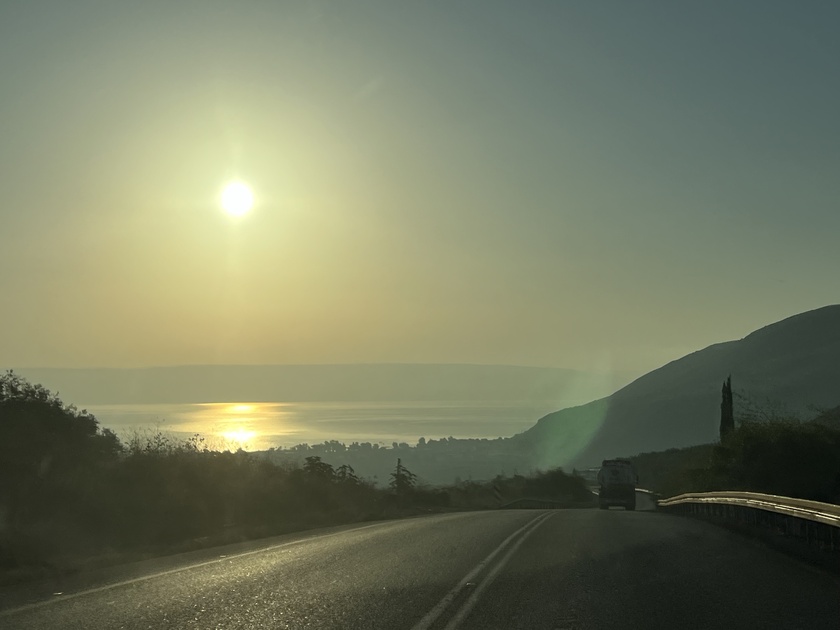I woke at 3:30 a.m. and jogged from my hotel to the Western Wall, the Kotel, to pray just after 4:00 a.m. I jogged back, showered, packed my belongings, and headed northwards, meeting old friends at the incomparable Hotel Magdala, on the Sea of Galilee.
We drove north to the Golan, stopping at an olive oil factory in the town of Katzrin before reaching Mount Hermon, the highest peak in the Middle East. A group of Israeli soldiers from the new Alpine Brigade took us around the mountain and to a lookout from Har Dov, a strategic point that Hezbollah wants Israel to give up: it commands all of northern Israel.
We drove onwards to Majdal Shams, the northernmost town in Israel, a Druze village where 12 children were killed by a Hezbollah rocket in July -- in retrospect, a turning point in the war.
Later, at the brigade's base, there was an incoming rocket alarm, and we ducked into a shelter. Several Christians in our group began a joyful song of prayer to lighten the mood. We heard the booms of the Iron Dome, and emerged to see the smoke trails of the downed rockets.
We headed south again, witnessing a spectacular sunset over the Galilee and Lebanon. In the distance, there was a wisp of smoke, rising from an Israeli airstrike in Lebanon. In the evening, I met for a delicious dinner in the Golan with a cousin who happened to be on a hiking trip.
So many thoughts in one day. Wondering what the future will bring; wondering about my own purpose in all of this; enjoying the fellowship of my fellow travelers; admiring the fortitude of the soldiers after more than a year of war; feeling so many emotions. A Thursday in Israel.
This week’s portion launches the great story of Abraham, who is told to leave everything of his life behind — except his immediate family — and to leave for “the Land that I shall show you.”
There’s something interesting in the fact that Abraham is told to leave his father’s house, as if breaking away from his father’s life — but his father, in fact, began the journey, moving from Ur to Haran (in last week’s portion). His father set a positive example — why should Abraham leave him?
Some obvious answers suggest themselves — adulthood, needing to make one’s own choices, his father not going far enough, etc.
But I think there is another answer. Abraham (known for the moment as Abram) needs to establish his own household. This is not just about making one’s own choice, but really about choosing one’s own starting point. It’s starting over.
Sometimes we start over in fundamental ways even if much that surrounds us remains the same. Sometimes the journey we have to ...
The story of Noah is familiar; the details, less so.
Noah is often seen as an ambivalent figure. He was righteous -- but only for his generation. What was his deficiency?
One answer suggests itself: knowing that the world was about to be flooded, he built an Ark for the animals and for his own family -- but did not try to save anyone else or to convince them to repent and change their ways (the prophet Jonah, later, would share that reluctance).
Abraham, later, would set himself apart by arguing with God -- with the Lord Himself! -- against the destruction of Sodom and Gomorrah, saying that they should be saved if there were enough righteous people to be found (there were not).
Still, Noah was good enough -- and sometimes, that really is sufficient to save the world. We don't need heroes every time -- just ordinary decency.
Hi all -- as I noted last month, I'm going to be closing down my Locals page, at least for tips and subscriptions -- I may keep the page up and the posts as well, but I'm no longer going to be accepting any kind of payment.
Look for cancelation in the very near future. Thank you for your support!

















